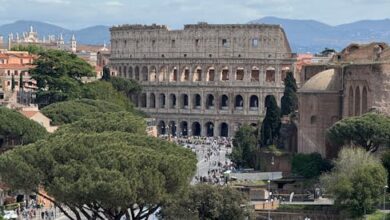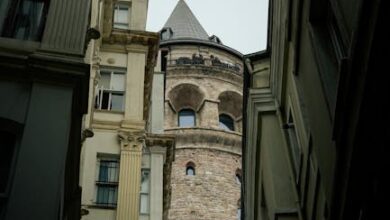The King’s Return: An Unofficial Coronation?

Imagine the scene: the hallowed grounds of Camp Nou, usually bustling with activity, reverent silence, or the roar of a hundred thousand fans, suddenly playing host to a ghost from its glorious past. But not just any ghost – the very spirit of its golden era, the undisputed king, Lionel Messi. For two decades, his presence was as fundamental to the stadium as the goalposts themselves. Yet, recent whispers, quickly escalating into full-blown reports, suggest something almost unbelievable happened during his latest visit: FC Barcelona, the club he defined, was reportedly unaware of his presence.
It’s a headline that stops you in your tracks, isn’t it? “Who let Lionel Messi into Camp Nou?” It sounds less like a football report and more like a comedic sketch or a dramatic thriller. For a figure of Messi’s unparalleled stature, whose every move is dissected by millions worldwide, the idea of him making a clandestine, unnoticed visit to his spiritual home is utterly baffling. It raises questions not just about security or club protocols, but about the very nature of his post-departure relationship with Barcelona, and indeed, the sometimes surreal reality of modern football.
This isn’t just about a football legend dropping by; it’s about the emotional resonance of the place, the lingering ties, and the sheer audacity of the idea that such a visit could happen under the radar of one of the world’s biggest sporting institutions. Let’s peel back the layers of this intriguing narrative and explore what it truly means.
The King’s Return: An Unofficial Coronation?
For most of his professional life, Camp Nou wasn’t just a stadium for Lionel Messi; it was his office, his sanctuary, his proving ground, and the stage for countless moments of magic. Every blade of grass, every echo in the stands, held a memory. Even after his tearful departure in 2021, the connection remained palpable. His return, whenever it happens, is always an event, a moment of deep symbolism for fans and the club alike. So, for him to pay a “surprise visit,” especially overnight, immediately sparks curiosity.
Reports emerged from various Spanish media outlets, citing sources close to the club, that Messi had indeed visited Camp Nou. The kicker, however, was that this visit was reportedly not coordinated or known by the official FC Barcelona hierarchy. He was apparently there to meet with staff members who were his friends, a personal pilgrimage rather than an official appearance. The very thought that Messi, the greatest player in the club’s history, could walk through the doors of its iconic stadium without the current administration being aware feels less like an oversight and more like a plot twist in an ongoing saga.
The Weight of History and Lingering Loyalties
It’s crucial to remember that Messi’s departure from Barcelona was not a clean break. It was agonizing, forced by financial realities beyond his control and, many argue, mishandled by the club’s then-administration. This left a raw wound for both Messi and the Barcelona faithful. There’s always been the hopeful murmur of a return, a poetic final chapter. His personal connection to the city and to many individuals still working at the club is profound and unwavering.
So, perhaps this visit wasn’t an act of defiance, but simply a deeply personal moment. An opportunity to reconnect with old friends, to walk the familiar grounds that still hold so much of his past, away from the glare of cameras and the burden of official protocols. The ‘unaware’ aspect might speak more to the informal nature of the visit from Messi’s perspective – a friend dropping by, rather than a global superstar making an official appearance. However, for a club of Barcelona’s magnitude, this distinction becomes incredibly fuzzy.
Security, Protocols, and the PR Conundrum
Let’s consider the logistical and practical implications. Camp Nou, even during renovations, remains a significant landmark and a high-security environment. It’s not a corner shop where anyone can just wander in. There are security personnel, access control systems, and protocols for who enters, especially outside of regular operating hours. For anyone, let alone someone as recognizable as Lionel Messi, to gain access without the knowledge of the club’s administration begs a few critical questions.
Is it possible that certain long-serving staff members, out of deep loyalty and friendship, facilitated his entry without informing higher-ups? Absolutely. In any large organization, personal relationships can sometimes bypass formal structures, especially when dealing with someone who is, to many, still family. This scenario paints a picture of a club perhaps a little too relaxed, or a leadership a little too disconnected from its foundational elements.
What Does “Unaware” Truly Mean?
The term “unaware” itself is fascinating. Does it mean no one in the club knew? Or does it mean the specific individuals in charge of official communications or executive operations weren’t formally notified? The latter seems more plausible. It’s unlikely that absolutely nobody within the Camp Nou ecosystem saw Messi or knew of his presence. More likely, it was not an officially sanctioned or communicated visit to the relevant departments that would typically handle such a high-profile guest.
From a public relations perspective, this is a delicate dance. If the club was genuinely unaware, it highlights a potential breakdown in communication or control. If they were aware but chose to keep it quiet, the “unaware” narrative could be a way to manage expectations, avoid fueling transfer rumors, or simply respect Messi’s desire for a private moment. The fact that the story broke suggests someone, somewhere, deemed it newsworthy, hinting at internal dynamics at play.
Beyond the Headline: A Deeper Look at Club-Legend Relationships
This incident, whether a genuine security lapse or a carefully orchestrated non-event, serves as a poignant reminder of the complex relationship between football clubs and their living legends. These aren’t just employees; they become symbols, embodiments of the club’s identity. Messi, perhaps more than any other player, became synonymous with Barcelona.
The situation underscores a unique challenge for clubs: how to maintain a respectful, open relationship with former stars who still hold immense emotional capital, while also managing the day-to-day operations and public perception. For Barcelona, a club still grappling with its financial woes and trying to forge a new identity post-Messi, his unscheduled presence, whether known or unknown, is always going to be a talking point. It keeps the flame of hope alive for many fans, while simultaneously reminding the current regime of the colossal shadow it operates under.
Ultimately, this ‘unaware’ visit feels like a metaphor for the current state of Barcelona – a club in transition, sometimes appearing to lack full control over its own narrative, and forever entwined with the legend of the man who once called Camp Nou home. Whether it was a spontaneous act of nostalgia, a quiet meeting with friends, or something else entirely, one thing is clear: Messi’s connection to Camp Nou transcends contracts, protocols, and even the official awareness of the club itself. It’s a bond forged in history, etched in passion, and alive in every corner of that sacred stadium.





